Home > For Providers > Manage Care > Quality of Care > Care-Based Incentive > Care-Based Incentive Resources > Maternity Care: Prenatal Tip Sheet
Manage Care

Maternity Care: Prenatal Tip Sheet
Measure Description:
The percentage of members who receive a postpartum visit on or between 7 and 84 days after delivery.
Incentive
Incentives will be paid to the linked PCP on an annual basis, following the end of quarter 4. For additional information refer to the 2021 CBI Technical Specifications.
Coding Requirements
- For a full list of acceptable codes that indicate a Post-Partum visit was performed, please see CBI Technical Specifications.
- For a full list of conditions that exclude members from this measure, please see CBI Technical Specifications.
Documentation Requirements
Medical record information must include a note from an OB/GYN, other prenatal care practitioner, or PCP indicating the date when the prenatal care visit occurred. The documentation should indicate one of the following:
- Pregnancy diagnosis
- Basic physical OB exam with auscultation of fetal heart tone or pelvic exam w/ OB observations, or measurement of fundus height
- Evidence prenatal care procedure was performed
- OB panel screening test
- TORCH antibody panel
- Ultrasound of a pregnant uterus
- Rubella antibody test/titer with a Rh incompatibility (ABO/Rh) blood typing
- LMP, EDD or gestational age, with either
- Prenatal risk assessment & counseling/education
- Complete OB history
Best Practices
- Clinicians providing antenatal care should actively engage families in their care and identify the health care professionals who will comprise the postpartum care team for the woman and baby.
- Formulate post-partum care plan during pregnancy and identify which healthcare providers will provide care for the woman and infant.
- At discharge from maternity care, provide the member written contact information for post-partum care team and instructions on timing of follow-up post-partum care.
- Provide a comprehensive post-partum visit within 6-weeks of delivery; which should include a full assessment of physical, social and psychological well-being.
- Discuss and provide contraceptives, if desired.
- As a continuum of postpartum care, all women of reproductive age who have been pregnant, regardless of the outcome of their pregnancies (i.e. miscarriage, abortion, preterm, full-term delivery), should receive interpregnancy care. Interpregnancy care is defined as care provided to women of childbearing age who are between pregnancies with the goal of improving outcomes for women and infants not just between pregnancies and during subsequent pregnancies, but also along her life.
- Initial components are shared amongst postpartum care guidelines for interpregnancy care include:
- Reproductive Life Planning
- Screening for depression
- Vaccination
- Managing diabetes or hypertension
- Education about future health
- Plans for long-term medical care¹
1Interpregnancy Care. Obstetric Care Consensus No. 8. American College of Obstetricians and Gynecologists. Obster Gynecol 2019; 133:e51-72
Contact us | Toll free: 800-700-3874

